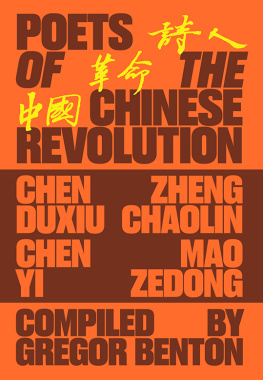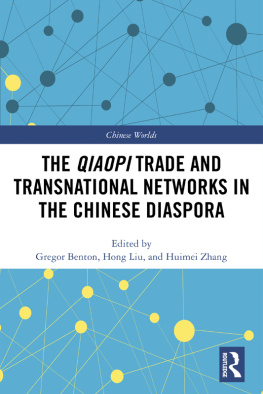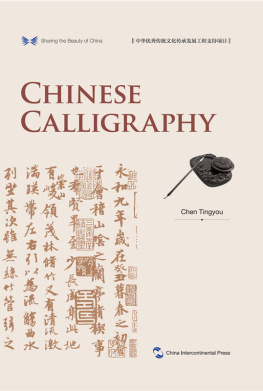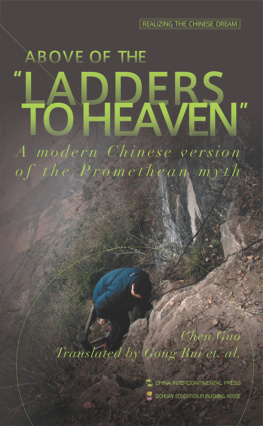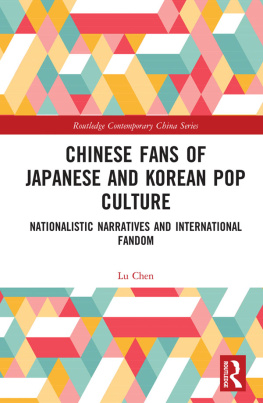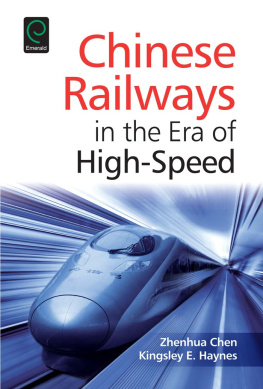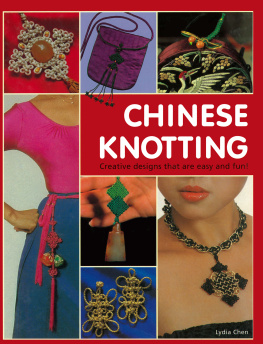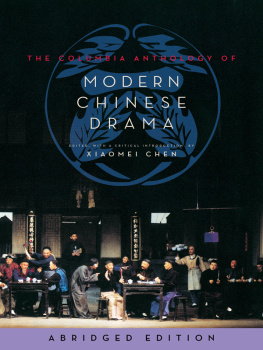ROUTLEDGE LIBRARY EDITIONS: CHINA UNDER MAO
Volume 1
CHEN DUXIUS LAST ARTICLES AND LETTERS, 19371942
CHEN DUXIUS LAST ARTICLES AND LETTERS, 19371942
Edited and translated by
GREGOR BENTON
First published in 1998 by Curzon Press
This edition first published in 2019
by Routledge
2 Park Square, Milton Park, Abingdon, Oxon OX14 4RN
and by Routledge
711 Third Avenue, New York, NY 10017
Routledge is an imprint of the Taylor & Francis Group, an informa business
1998 Gregor Benton
All rights reserved. No part of this book may be reprinted or reproduced or utilised in any form or by any electronic, mechanical, or other means, now known or hereafter invented, including photocopying and recording, or in any information storage or retrieval system, without permission in writing from the publishers.
Trademark notice: Product or corporate names may be trademarks or registered trademarks, and are used only for identification and explanation without intent to infringe.
British Library Cataloguing in Publication Data
A catalogue record for this book is available from the British Library
ISBN: 978-1-138-32344-5 (Set)
ISBN: 978-0-429-43659-8 (Set) (ebk)
ISBN: 978-1-138-34318-4 (Volume 1) (hbk)
ISBN: 978-0-429-43929-2 (Volume 1) (ebk)
Publishers Note
The publisher has gone to great lengths to ensure the quality of this reprint but points out that some imperfections in the original copies may be apparent.
Disclaimer
The publisher has made every effort to trace copyright holders and would welcome correspondence from those they have been unable to trace.
Chen Duxius Last Articles and Letters, 19371942
Edited and Translated by
Gregor Benton
Published under the auspices of the International Institute of Social History, Amsterdam
CURZON
First Published in 1998
by Curzon Press
15 The Quadrant, Richmond
Surrey, TW9 1BP
1998 Gregor Benton
Layout and Typesetting by Aad Blok, IISH, Amsterdam
Printed and bound in Great Britain by
Biddles Ltd, Guildford and Kings Lynn
All rights reserved. No part of this book may be reprinted or reproduced or utilised in any form or by any electronic, mechanical, or other means, now known or hereafter invented, including photocopying and recording, or in any information storage or retrieval system, without permission in writing from the publishers.
British Library Cataloguing in Publication Data
A catalogue record of this book is available from the British Library
ISBN 0-7007-0618-6
Contents
List of Figures
The following photographs appear between page 94 and 95:
A Map of China in the 1930s appears on page 2
When Gregor Benton asked me to write a foreword to this collection of Chen Duxius last articles and letters to introduce their author to Western readers, I felt duty-bound to accept, as Chens disciple, correspondent, and occasional critic. However, my great age and poor health prevent me from writing seriously about the subject. In any case, the translator has already provided a detailed introduction to Chens life, work, and thought, his prodigious role in Chinas modern history, and the changing evaluation of him by succeeding generations of Chinese Communists, as well as explaining in footnotes various events and characters relevant to an understanding of the text. Moreover, the book concludes with a series of appendices that evaluate Chens stature as a thinker and a revolutionary. As a result, there is litde left for me to say. Even so, I would like to take the chance to write a few lines about the special features of Chens life and thinking.
The first collection of Chens writings, published in 1922 by Shanghais Oriental Book Company, contained several dozen essays and a large number of contemporary comments and letters written by him between 1915 and 1922. In a brief preface to the collection he wrote:
These several dozen essays are not only not works of literature but even lack a systematic exposition. They are simply a direct account of my various intuitions. However, they are all my own intuitions, and in them I forthrightly speak my mind. I parrot no one, nor do I strike sentimental poses. In that respect, they may be worth publishing. The themes covered by these several dozen essays are numerous and varied, thus demonstrating that literature is the product of social change. In that respect, too, they may be worth publishing.
In just a few lines, Chen gives the reader an extremely accurate description of his literary style and his character as a man. First, he tells us that he writes straight from the heart about his intuitions, that he plagiarises no one, and that he adopts no sentimental poses. Second, he points out that literature which should be understood not in the narrow but in the widest sense, as writing of all kinds is the product of changes in society, so articles written by him at different times tackle different themes.
These two characteristics epitomise the worth of Chens writings throughout his life, including in his last years. So the preface that Chen wrote for his first articles and letters serves perfectly to introduce his last articles and letters.
More than twenty years separated Chens early collected writings from the articles and letters collected in this present volume. In those twenty years, Chen played a leading role in Chinese affairs. At the same time, his knowledge particularly of Marxism and his experience progressed enormously. Even so, his essential nature both as a thinker and as a doer remained unchanged throughout those years. He continued to be directed by intuition, to speak straight from the heart, to avoid parroting the views of others, to refuse to strike sentimental poses, and to think and act independently.


